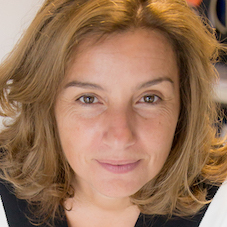|
|
|
KeynotesKeynote speakersWe are proud to welcome as keynote speakers in Marseille Pr. Raja Ben Slama (Univ. Manouba, Tunisia) and Sebastian Majstorovic (PhD student at the European University Institute, Florence). The RESAW 2023 conference audience will also be lucky to attend the carte blanche offered to Dana Diminescu.Keynote Monday 5 June : Pr. Raja Ben SlamaMonday 5 June from 10:00 to 10:45 Web archiving in Tunisia after 2011. Experience of the National Library of TunisiaSince the revolutionary events of 2010-2011 in Tunisia, the pain of losing a large part of the written heritage in a country at the crossroads of struggles, influences and migratory movements has been accentuated by the observation of the disappearance of the essentially digital documents that marked the facts. In 2016, in order to contribute to their identification and recording, the National Library of Tunisia (BnT) joined the collective of public institutions, associations and volunteer researchers to collect and archive these documents scattered on the web and in the mobile phones of citizens who took part in the popular uprisings that took place between 17 December 2010 and 14 January 2011. Pr. Raja Ben Slama, Tunisian academic and psychoanalyst, is the author of several books that question the myths and silences of the Arab-Islamic tradition and the paradoxes of modern mutations. She was editor-in-chief of the electronic journal of critical thought, Alawan, from 2007 to 2020, and director-general of the National Library of Tunisia from 2015 to 2023.
Keynote Tuesday 6 June: Sebastian MajstrorovicTuesday 6 June from 09h00 to 09h45 Web Archiving as Digital Empowerment: Saving Ukrainian Cultural Heritage Online (SUCHO)In a world of ever-increasing digital content, very few people possess the necessary skills to preserve their own data. Saving Ukrainian Cultural Heritage Online (SUCHO) is an international grassroots initiative of over 1,500 volunteers, which emerged in response to the full-scale Russian invasion of Ukraine in February 2022. The SUCHO volunteers have collectively archived over 50 TB of data, including several thousand Ukrainian websites, war memes, books, artworks and many other digital cultural objects. This keynote will outline how the initiative enabled complete strangers with very different backgrounds and digital skill sets to become experts in web archiving overnight. Reflecting on the SUCHO experience, the talk will raise several questions: How can we decentralise web archiving in the future? What constitutes digital heritage? Which tools and strategies are needed to democratise digital archiving practices? By tackling these and other crucial questions, the keynote will argue that web archiving can empower internet users to reclaim and preserve their personal and shared digital heritage on their own terms. Sebastian Majstorovic is a Digital Historian, Data Scientist, and one of the co-founders of Saving Ukrainian Cultural Heritage Online (SUCHO). Sebastian studied History, Film Studies, and East European Studies at Queen Mary University of London and University College London. He is currently finishing his PhD in History at the European University Institute in Florence, Italy. His digital fields of expertise include geospatial visualisation, audiovisual sources and applied AI. Sebastian currently works as a freelance consultant and as Digital Advisor to the ERC project “CAPASIA – The Asian Origins of Global Capitalism”.
Carte Blanche for Dana Diminescu on Monday 5 June 16:00-16:30Monday 5 June 16h-16h30 "Just like home". The words of hospitality shared onlineThe conference proposes to reflect on the emotional dimension in research based on numerical methods, based on the study of the Calm ("Comme à la Maison"/As at Home) programme. Since 2015, the Singa association, through its Calm programme, has been bringing together French families who wish to host a person who has applied for asylum. The link between the host and the refugee is established by filling in an online form. Calm was originally conceived as a kind of refugee-specific air B&B. That is, to bring together, without any other intermediary, a person who would like to host a stranger in his home and refugees who are looking for shelter. In fact, the form of the host (refugee) has never really been implemented. The host form, on the other hand, remains accessible and is regularly updated by the association. We count - through the archive of the platform - about 12 thousand registrations between 2015 and 2022. Once filtered and anonymised, these Calm archives could be explored (with computational analysis methods) by dimensions (geographical, socio-demographic, etc.) and a detailed analysis could be made of the evolution of the vocabulary used by the hosts in the fields of "motivations" and "tell us about yourself". In this artistic project, we want to explore the emotions contained in this archive through an artistic, playful and educational installation, which will be hosted in the permanent collection of the Museum of Immigration History of the Porte Dorée, but also in the reception centres of the Singa association, as well as in various exhibition and reception venues in France and abroad. Dana Diminescu is sociologist, Associate Professor at Télécom Paris, Institut polytechnique de Paris. Her empirical work and publications focus on mobility and remote communication, integration strategies in relation to the use of ICT, the archiving and mapping of the web of e-diasporas, computer borders, as well as new forms of ethnic economy. Known for her epistemological manifesto dedicated to the "connected migrant", she has developed a series of innovative quali-quanti methods that have made it possible to analyse how ICTs are used by migrants in a variety of use situations (transnational and local). In particular, she coordinated and designed the e-Diasporas atlas awarded in 2012 at the Digital Humanities Awards and designed the JokaJobs application for generation Y job seekers on a smartphone.
|




